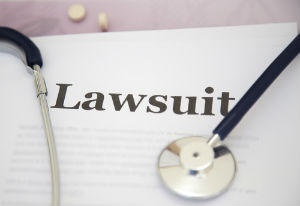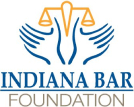
Older adults in Indiana who become residents of nursing homes or “comprehensive care facilities” often live out the rest of their lives there. The Centers for Disease Control and Prevention (CDC) says there are about 1.5 million nursing home residents in the U.S., including 39,167 Indiana residents. The CDC also says one in five U.S. deaths occur in nursing homes.
There is a huge difference in a natural death under medical care in a nursing home and fatal accidents caused by assisted living neglect. Unfortunately, Indiana is considered one of the worst offenders in the nation for serious healthcare deficiencies against the elderly. An August 2012 ABC News report in South Bend found 5,185 reports to Medicare.gov for inadequate care in Indiana nursing homes over the previous year.
When a loved one is severely injured or a nursing home death happens prematurely because of actions or inaction on the part of the nursing home staff, the family of the deceased patient deserves to know what happened and why. They also deserve to be compensated if nursing home abuse or negligence is found. Usually the family’s only recourse is to pursue a medical malpractice action or wrongful death lawsuit on behalf of their loved one.
How Indiana Nursing Home Fatalities Occur
It is a hard but often necessary decision to turn the care of a loved one over to the staff of a nursing home. In Indiana, nursing homes are regulated by the Division of Long Term Care of the Indiana State Department of Health. They are supposed to be safe and caring environments for our loved ones’ final days. Often, that is not the case.
Some of the common reasons nursing home residents suffer wrongful deaths include:
- Falls – The CDC says about 1,800 people living in nursing homes die each year from falls. Falls in the elderly can be linked to frailty, chronic illness and the effect of certain medications. Falls often occur because nursing home patients are not properly supervised by staff or properly assisted when they have mobility issues.
- Infections – The Clostridium difficile, or C. difficile, infection is a health care-associated infection (HAI) linked to 14,000 deaths in the U.S. each year, the CDC says. More than 90 percent of those deaths occur in people age 65 and older, and almost 75 percent of C. difficile cases first show up in nursing home patients or in people recently cared for in doctors’ offices and clinics.
- Bed sores – These wounds are also known as “pressure ulcers,” “pressure sores” or “decubitus ulcers.” They can also lead to infection. The CDC says about 159,000 nursing home residents in the U.S. suffer from bed sores. Some bedsores are the result of medical negligence. Stage IV bedsores are considered “never events” by Medicare and are usually the result of medical negligence.
- Medication errors – A CDC survey found that nearly one-half of all nursing home residents took nine or more medications. Taking many medications concurrently is broadly defined as “polypharmacy.” While polypharmacy in itself may not be a threat, as the number of prescribed medications increases, the opportunity for an inattentive nurse or another staff member to make a mistake increases as well.
- General neglect or abuse – Far too often, nursing home patients die because they simply were not cared for properly. Many times, nursing home residents are not fed properly and suffer from malnutrition or dehydration. Some patients are left unsupervised, which can lead to falls or wandering off. Because of their disease or dementia, some patients may be improperly restrained or proactively abused (slapped or otherwise physically harmed). This leads to premature degeneration and death. Some nursing home residents are sexually abused.
What to Do After a Wrongful Nursing Home Death
The Indiana State Department of Health’s Division of Long Term Care in Indianapolis accepts and investigates complaints about the care provided at nursing homes in our state. The Division provides guidelines for reporting a complaint. These guidelines are useful for gathering information after a nursing home resident dies unexpectedly. The information should include:
- Full name of the nursing home and the city where it is located.
- The date(s) (if a specific date is applicable) of the incident(s) leading up to your loved one’s death. If there are no specific dates, attempt to address the time period (e.g., weekdays, weekends, within the last week, within the last month, etc.) relative to incidents leading up to your family member’s death.
- Time of day (or shift) applicable to each incident described (e.g., 7 a.m., day shift, evening shift, night shift, etc.).
- Individuals (or departments) involved (e.g., nursing staff, nurse aides, dietary staff, etc.).
- Specifics, such as examples of the behavior you have observed that you believe may have contributed to your loved one’s death. Or, for example, if you don’t think unsanitary conditions may have contributed to your loved one’s death, specifically state what makes it unsanitary (e.g., dust, debris, soiled floors, etc.).
- Record your observations and concerns as soon as possible to help ensure an accurate and thorough investigation. It is difficult to effectively gather or accurately remember information surrounding an incident that has occurred months before.
This information may not be available to you because you were not present immediately prior to your loved one’s death or because nursing home staff members do not respond to your questions adequately. Indeed, nursing home staff will be protective of themselves and their employers after the wrongful death of a resident, and they are likely to have lawyers that they refer your questions to.
Families can call the Indiana Department of Health to file a complaint and ask for a nursing home survey: 1-800-246-8909.
Should You File a Nursing Home Death Lawsuit?
 You will fare best if you, too, have a lawyer experienced with nursing home fatalities in Indiana investigate whether there has been medical negligence. It is important after someone dies in a suspicious manner to take immediate action so that decisions about an autopsy can be made and records are obtained before they can be misplaced or destroyed. An experienced Indiana nursing home death attorney knows the important steps to take and how to work around uncooperative nursing home officials.
You will fare best if you, too, have a lawyer experienced with nursing home fatalities in Indiana investigate whether there has been medical negligence. It is important after someone dies in a suspicious manner to take immediate action so that decisions about an autopsy can be made and records are obtained before they can be misplaced or destroyed. An experienced Indiana nursing home death attorney knows the important steps to take and how to work around uncooperative nursing home officials.
Contact Our Indiana Nursing Home Death Lawyer Today
With nearly 20 years of litigation experience, Kelley J. Johnson has the skill and knowledge to hold nursing home officials and their corporate owners accountable for the physical, emotional and financial harm caused by the wrongful death of a nursing home resident.
To schedule a free and confidential review of your case, call the nursing home death lawyer of the Law Office of Kelley J. Johnson in Indianapolis today at our toll-free number or fill out our online contact form. We’ll respond within 24 hours.









